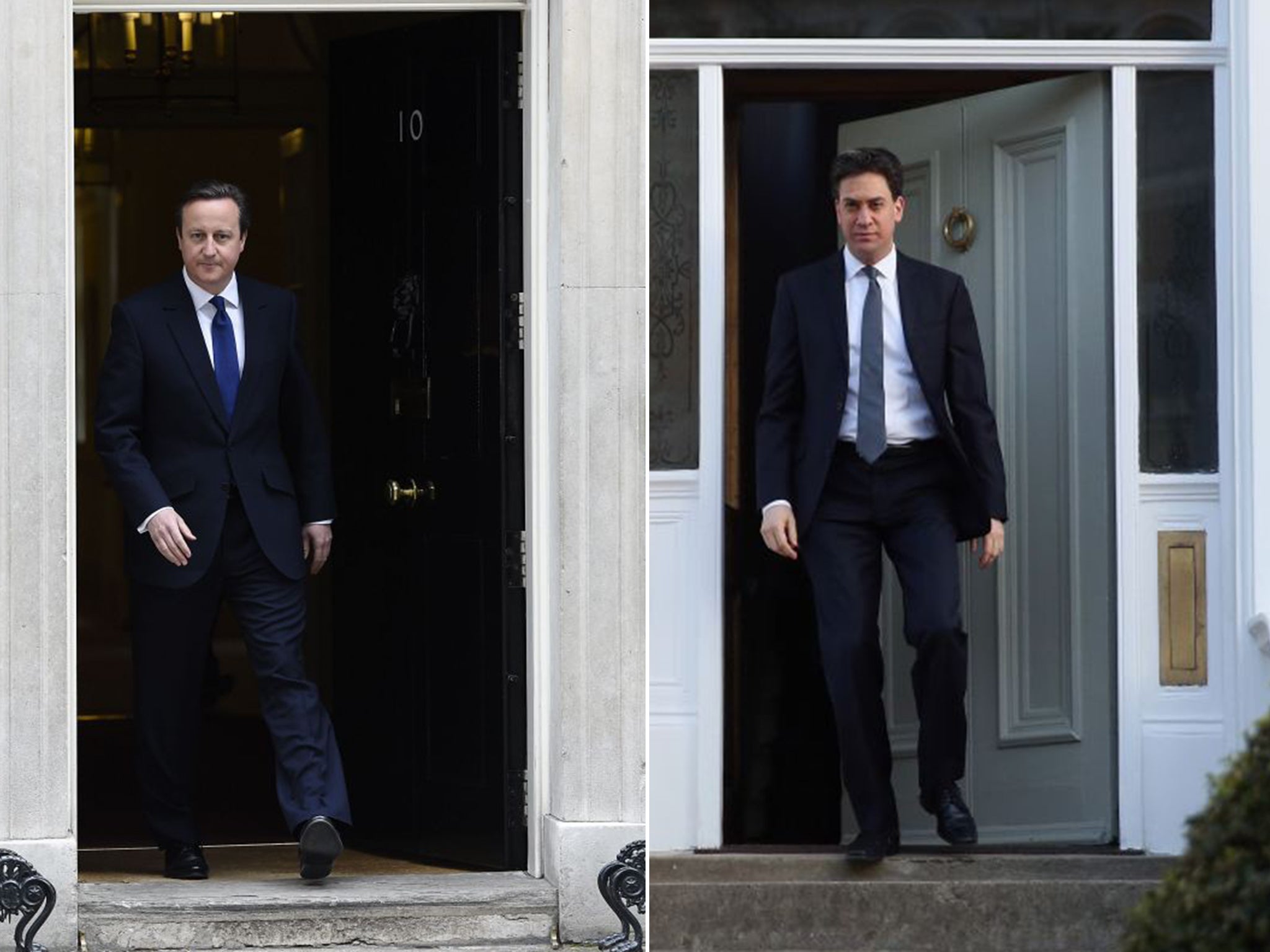General Election 2015: Labour and Tories both accused of hiding impact of planned spending cuts from the public
Labour former Cabinet minister Alan Milburn said all parties had a 'responsibility' to be honest with voters about the impact on society of their cuts

As the general election campaign began yesterday, the Coalition’s adviser on poverty attacked both the Conservatives and Labour for keeping voters in the dark about the impact of their planned spending cuts until after polling day.
His criticism came as the respected Institute for Fiscal Studies dismissed David Cameron’s claim that Labour would raise taxes by more than £3,000 for the average working household by 2020, and said both main parties should come clean about their tax and spending plans.
Alan Milburn, who chairs the Commission on Social Mobility and Child Poverty, added to the pressure on the Tories to spell out the detail of their proposed £12bn welfare cuts before the May 7 election. Options drawn up by the Department for Work and Pensions, leaked to the BBC last week, include taxing disability benefits and a regional benefits cap. Ministers insist no decisions have been taken – and may not reveal their plans until after polling day.
In an interview with The Independent, Mr Milburn accused politicians of risking an “inter-generational war” by protecting perks for wealthy pensioners while squeezing state support for young adults in work. He said the two biggest parties were stuck in their “comfort zones” and appealing to their core vote – the Tories on the economy and Labour on the NHS.
The Labour former Cabinet minister said all parties had a “responsibility” to be honest with voters about the impact on society of their cuts. “If you have been through a period of economic turbulence and the books are still not balanced, the challenge for all the political parties is to prove they have both the competence and the plans to deliver. Detail here may not be the politicians’ friend, but it is the voters’ friend,” he said. “For both Ed Balls and George Osborne, there is an equal necessity to spell out exactly how they aim to balance the books, not just when.”
Budget 2015: George Osborne unveils pre-election package
Show all 7He added: “As chairman of the commission, I want to see where the parties are placing their bets. Right now, there is not a lot of visibility. I want to understand what the implications might be for poverty and the prospects for social mobility.”
The IFS was critical of the fiscal plans of both main parties, saying: “We don’t know what they will do after the election.” Rebuking Mr Cameron for his £3,028 Labour “tax bombshell” claim, the IFS said: “There is little value in bandying around numbers which suggest that either party would increase taxes by an average of £3,000 for each working household.” But it also said there was “real uncertainty” about Labour’s proposals for the public finances, and that the Tories have been “clearer about what they want to achieve.”
Chris Leslie, the shadow Chief Treasury Secretary, said: “This is a disastrous and embarrassing start to David Cameron's campaign. Within hours of making totally false claims about Labour on the steps of Downing Street, the independent IFS has totally undermined them”. A Tory source insisted: “The IFS didn’t say our figure was wrong.”
In his interview, Mr Milburn accused the parties of “political expediency”, saying that keeping free TV licences and bus passes for wealthy pensioners might make sense politically, but did not socially. The Tories would also keep winter fuel allowances for all pensioners.
He asked: “Is it really the priority in the country to give wealthy pensioners free bus passes, free TV licences and winter fuel payments, at a time when we have the endemic problem of low income earners in work? We have a bigger problem now with low pay than with unemployment in Britain.” He contrasted the cushioning of rich pensioners with a 50 per cent fall in the home ownership rate among 25 year-olds.
Mr Milburn warned that Tory plans to freeze most working age benefits for two years would hit the low paid and reduce the incentive to work. “Cuts to in-work benefits can only have one consequence. More people who stand on their own two feet and get jobs will simply not have the income to escape poverty,” he said.
The Blairite former Health Secretary said: “With an economic recovery underway, the big question surely is: what is the shape of the recovery, and what social benefit accrues from it? Unfortunately, it seems that the election is polarising into a debate between the economy and the NHS. When it is close, the principal parties are tempted to take a comfort blanket position to shore up their core vote.”
Mr Milburn rejected Ed Miliband’s view that the country had shifted to the left, saying it was not very different to 1997 when Tony Blair won his landslide victory. He said: “The two great post-war political figures who have dominated politics and secured big parliamentary majorities –Margaret Thatcher and Tony Blair –made aspiration their calling card. Both spoke beyond their heartlands. Mrs Thatcher spoke to council tenants as well as home-owners. Tony Blair spoke to the south as well as the north.”
“Elections are won in the centre. The odd and striking thing is that there seems to be a gap in the market in the middle.”
Subscribe to Independent Premium to bookmark this article
Want to bookmark your favourite articles and stories to read or reference later? Start your Independent Premium subscription today.

Join our commenting forum
Join thought-provoking conversations, follow other Independent readers and see their replies